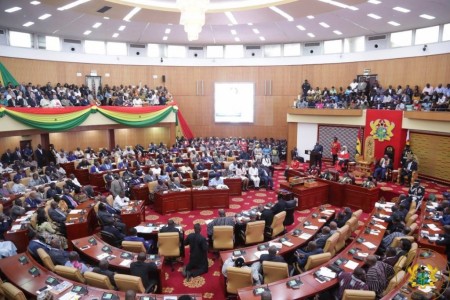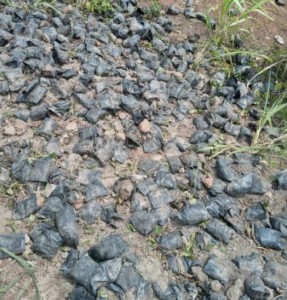Parliament Approves 74-million-Euro Tarkwa Water Project

The people of Tarkwa and its surrounding areas have all cause to heave a sigh of relief from the long suffering from acute water shortage, as the Parliament of Ghana on Wednesday, June 8, 2022 approved a Seventy-Four Million, One-Hundred and Forty-Five Thousand, Five Hundred Euros (€ 74,145,500.00), for the their Water Supply Project.
The funds for the water supply project which, when completed, is expected to benefit major Tarkwa towns like Bonsa, Bankyem, Charliekrom, Efuanta, Kwabedu, Mantrem, Agona Wassa, Nsuta, Tamso, Fanti Mines, Senyaekurase, Akyempim, Simpa, Dompim-Pepesa, Brofoyedru, Atoabo, UMaT and others, yesterday received the Parliamentary Select Committee on Finance’s approval.
Member of Parliament for the area, George Mireku Duker, who joined the Parliamentary Select Committee on Finance in approving the deal, described it as great news.
“This is great news for my constituents as I keep striving for development”, he said; and, expressed his people’s profound appreciation to President Nana Akufo-Addo for granting him a request dearest to his heart.
“On behalf of my Constituents, I thank H. E. Nana Addo Dankwa Akufo-Addo for granting this important plea I made on behalf of my People”, Mr. Mireku Duker, stressed.
The Project is expected to be completed in 36 months when started.
The people of Tarkwa have been experiencing acute water challenges for a very long some time now.
The area’s Bonsa water treatment plant was built in 1975 by A Lang Company Limited with an installed capacity of 4,500m3, with a current average daily production output of about 2,800m3. The raw water source for the plant is the River Bonsa, which supply water to the Tarkwa township and its environs.
Tarkwa is an old and important gold mining town located in a sub-humid tropical climate with its economy built on mining and allied services. The current high gold price has generated a vibrant local economy in Tarkwa and increased its population and water use.
However, most of the supplying wells were constructed without recourse to professional advice and preliminary results have revealed that some are biologically and chemically contaminated while others are at risk of becoming contaminated.
Additionally, inadequate waste disposal practices, building on hills and in recharge areas, washing of cars into receiving streams, illegal mining and its processing also into receiving streams suggest that surface and some ground water are being contaminated.
A comprehensive water resources management plan in the form of an environmental impact statement including the delineation of groundwater protection zones is recommended to address water issues in Tarkwa. Public education on environmental issues, enactment and enforcement of by-laws arising from this plan should be implemented.
Recall that Water and Sanitation Minister Cecilia Abena Daapah, when briefing the press last year, described the rate of pollution by the illegal miners as very shameful, with all the sources of drinking becoming brownish like tea.
She indicated that, the plant is experiencing substantial raw water reduction and heavy siltation of the raw water abstraction point as a result of galamsey operations on the Bonsa river; revealing that the amount of alum used at the plant has since 2009, increased from 10 bags per week to 40 bags per week due to galamsey which causes the colour and turbidity to deteriorate.
She also noted that, a lot of clay had been mixed with the water, which means that, the quality of the water as a raw source for the plant had been compromised and, appealed to the traditional leaders in the area to support government in stamping out the menace of illegal mining in the area, as government is committed to bring sanity to mining the sector.
Source: Anchorghana.com




